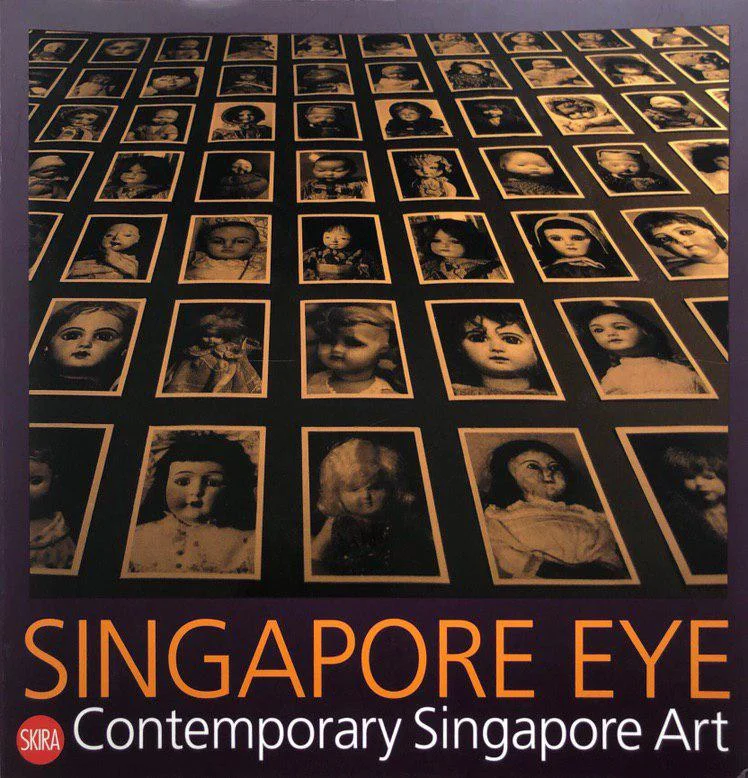Written/Contributed

‘From A (Undesirable) Diary’, Wee’s fourth poetry collection is an imaginative reconstruction of a history of permission and prohibition in the Malayan Peninsula. Through excerpts from a fictive publisher’s diary, Wee trace encounters and negotiations with the censor and the censored, beginning just before the implementation of the laws against ‘undesirable publications.’ The central section carries us into the difficulties of making literature in the present, each diary entry a record of single painful incidents, each a study of our acts of reading both the printed word and the world. The devastating final section acknowledges the history of books and bookmaking as a history of foreclosures, while staying alert to art’s possibilities.

‘In Short, Future Now’ claims the imaginative terrain of Asia as one of flooded ruins and mobile islands, and as times of repair and self-interrogation. Taking cues from renga and haiku forms, In Short, Future Now is a single poetic sequence where Asia appears as an archive of the future, one always already at the cusp of arrival. This is Asia as an event, a post-authoritarian territory, a body in the aftermath of new pathologies and surveillance, a demand, a Fermi question, a wilder post-super-future Asia.
A finalist for the Gaudy Boy Poetry Prize. Received the Singapore Literature Prize 2022 Judges’ Citation.

This poetry collection stands as a record of a friendship between two artists, Lee Wen and Jason, formed in the shadow of illness and mortality. Using the renga and haiku as departure points, Wee wrestles with the limits of art and the document, opening with obituaries and ending with a renewed beginning. stands as a record of a friendship between two artists, Lee Wen and Jason, formed in the shadow of illness and mortality. Using the renga and haiku as departure points, Wee wrestles with the limits of art and the document, opening with obituaries and ending with a renewed beginning.
A Singapore Literature Prize finalist 2020



An essential and comprehensive book on contemporary art in Singapore today.
Singapore Eye features seventy-five of the country’s most dynamic contemporary artists, as well as contributions by experts tracing the origins and history of artistic development in Singapore.

Through the 90-odd paintings in this book, Teng Jee Hum hopes to share his feelings about what it has been like to be a Singaporean in the last 50 years or so. Many of the images are the artist’s take on the first Prime Minister of Singapore and his policies in governing Singapore.
Jason’s critiques of Teng’s work are included in this book. They appear alongside critiques by Singaporean curator Seng Yu Jin and Chinese curator and art critic Mei Huang.

Rhyme is Shakespeare. Rhythm is rap. Sing Lit is free verse. If you’ve ever had such thoughts, let this book demolish them. With poems drawn from 80 years of print and online material, UnFree Verseilluminates an important but overlooked aspect of Singapore’s literary history: formal poetry in English.
In this collection, the formal poem becomes a focal point for the duelling forces of repetition and improvisation, standards and Englishes, freedom and boundaries. Might these constraints be fertile soil for creativity in a city like Singapore?

A collection occasioned by the Ministry of Education’s desire to include the study of Singapore poetry for the A-levels.
Lines Spark Code gathers their poems into a movement to ground the study of English poetry on Singapore soil. This is a project that will bring teachers and students into face-to-face dialogue with the very poets whose lines will spark code-making in brilliant Singaporean essays yet to be written.

What does the future of Singapore hold?
In 2015, the anthology A Luxury We Cannot Afford commemorated 50 years of man-made myth — and whether the 1969 assertion that "poetry is a luxury we cannot afford" still held true in the 2010s.
But instead of looking back, this companion volume to the first looks forward to everything after SG50 and beyond. In this uncertain future, poetry is a luxury we must afford.

Place.Labour.Capital., published by NTU Centre for Contemporary Art Singapore (NTU CCA Singapore) and Mousse Publishing, connects cultural production and artistic research to broader political and social concerns, engaging readers with contemporary debates in Southeast Asia and beyond.
Unfolding across four broad sections of “The Making of an Institution,” “The Geopolitical and the Biophysical,” “Incidental Scripts,” and “Incomplete Urbanism,” this publication reads as an exhibition.

The Epigram Books Collection of Best New Singaporean Short Stories: Volume Three gathers the finest Singaporean stories published in 2015 and 2016, selected by guest editor Cyril Wong.
This volume features short story contributions from Jason, alongside works by Eva Aldea, Joelyn Alexandra, Jennifer Anne Champion, Andrew Cheah, Clara Chow, Noelle Q. de Jesus, Melissa De Silva, SC Gordon, Jon Gresham, Philip Holden, Amanda Lee Koe, Su Leong, Leonora Liow, Manish Melwani, Sam Ng, Nuraliah Norasid, O Thiam Chin, Jollin Tan, Verena Tay, Jason Wee, Daryl Qilin Yam, Yeo Wei Wei, Yeoh Jo-Ann, Yeow Kai Chai, Ovidia Yu, and Andrew Yuen.